Veterinary Medicine's seven-year accreditation
‘A visitation is an opportunity to take a critical look in the mirror’
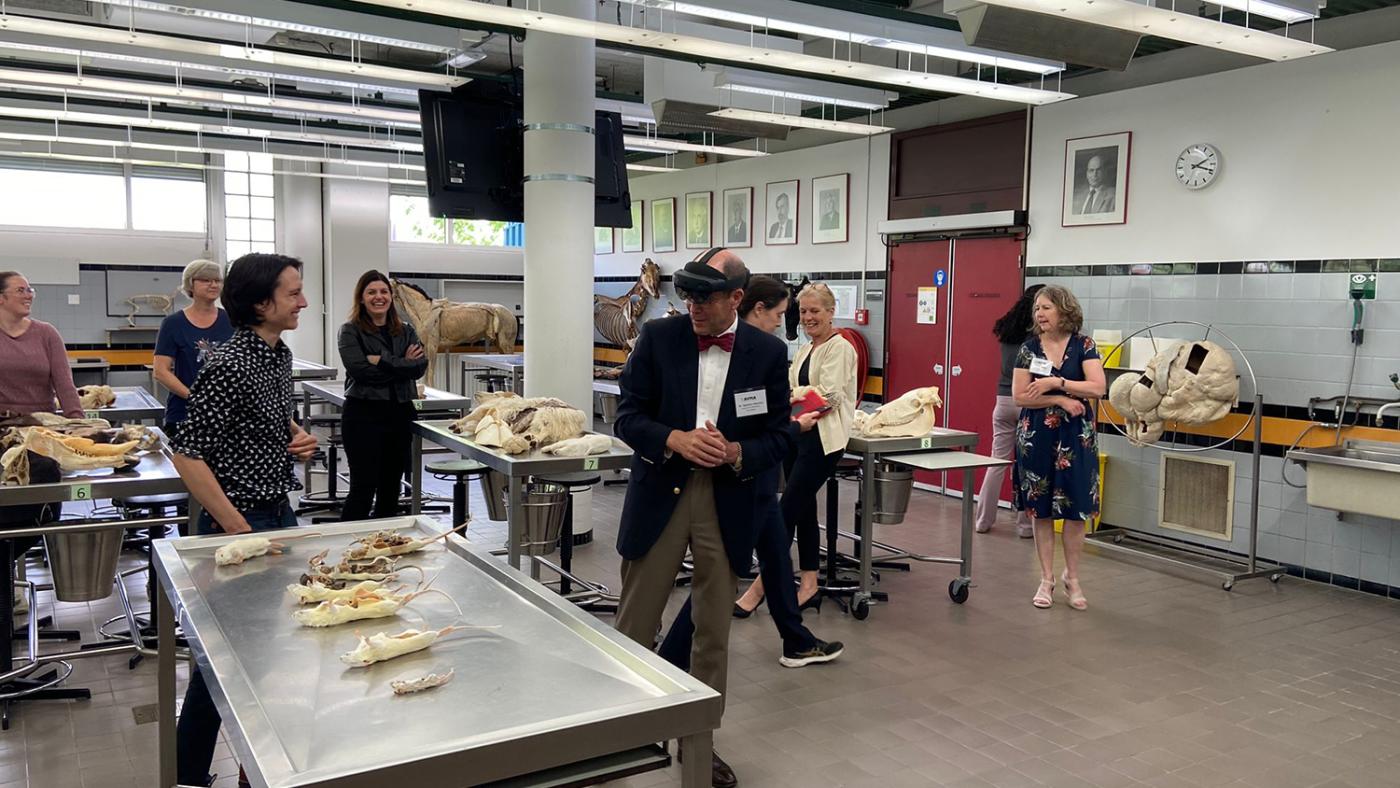
This isn’t the start of a war thriller. These past weeks at the Faculty of Veterinary Medicine were all about renovating their accreditation by AVMA, the American Veterinary Medical Association. The inspection takes place every seven years and the most important part of it is a visitation from a ten-person panel, which happened between May 21 and May 26. It was an exciting week for both students and staff members, who had to answer the panel’s questions.
AVMA's quality stamp matters a lot. Since 1973, UU graduates can work as veterinarians in the US and Canada as well. All they have to do is complete the North American Veterinary Licensing Exam, "the final exam that all vet students in the US and Canada have to take in order to graduate,” student Fianne explains. “Without this certification, vets interested in working in the US would have to get a degree all over again. So, it’s a great advantage. In Europe, only Lyon and Dublin have it as well,” adds vice-Dean Harold Bok, who helped the faculty get ready for the visitation and welcome the accreditation committee.
Fianne is in the final year of a Master’s in Equine Health Care and she’s already passed her test. Not to work in the US, although she doesn't rule that option out. She's actually interested in working as a ver in Australia, where she can also use her diploma. "There is a big chance I will end up going to the US, though, because that's where I did my research internship. I’m definitely looking forward to going back.”
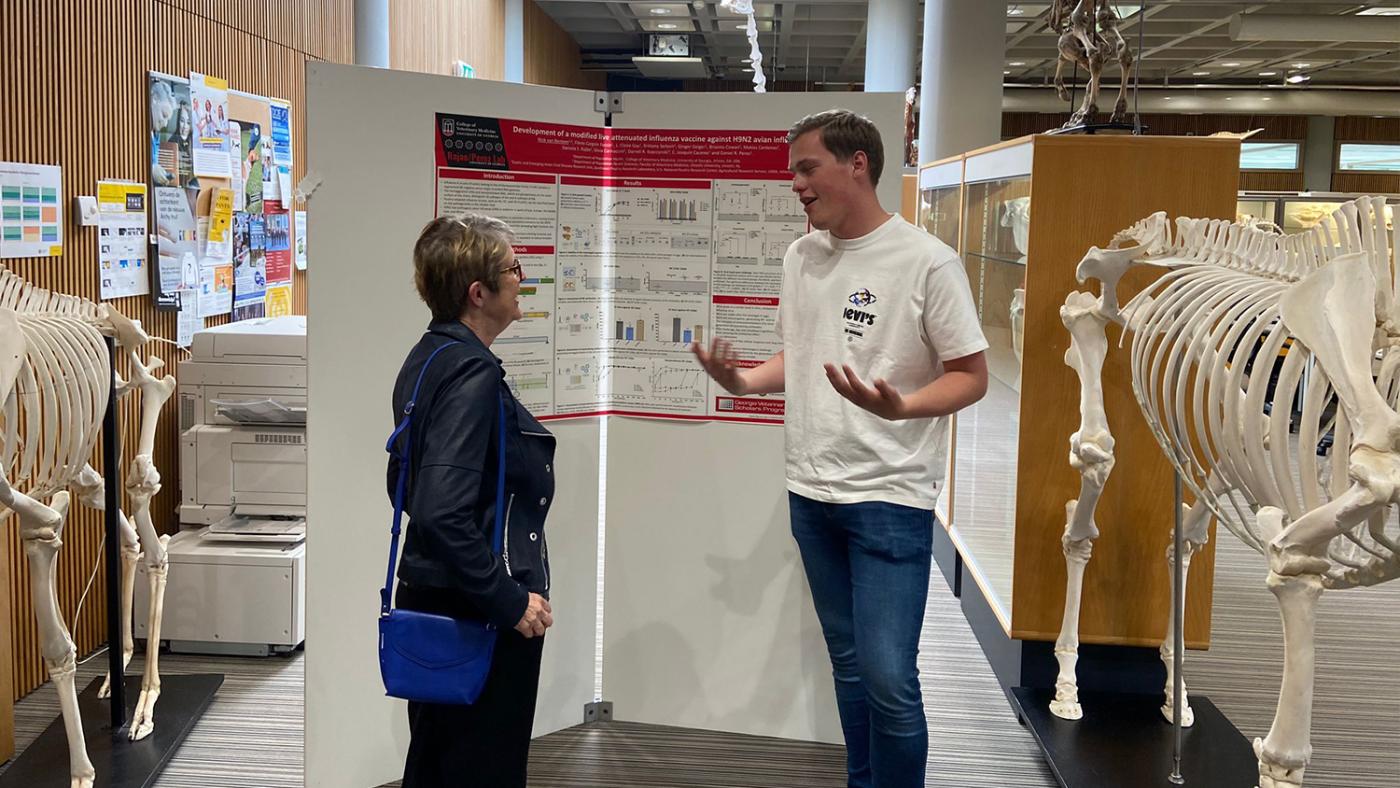
A member of the accreditation committee visiting a presentation on Sunday. Photo: courtesy of the Faculty of Veterinary Medicine
Brown strike and blood spots
The visit started on Sunday evening with a poster session that gave the panel the chance to talk to numerous students at both the Bachelor's and Master's levels, including Fianne and Graciela, whose poster wasn’t about research but rather about programmatic testing, a way to monitor the progress of students. The method is already used quite often in the Veterinary Medicine programme. The Americans were very interested in it because the concept was totally new to them. “We had a conversation about it and they wanted to hear from us students how we’re experiencing the programme. They were very sweet people,” says Graciela. As for Fianne, she presented the research she’s conducted in the US. She says it was a fun, interesting evening. “I wasn’t really nervous and the other students and teachers didn’t seem to be either.”
More tours and conversations followed in the five days after that, which made some employees a bit anxious. Desk worker Roos, from Companion Animals, for example, didn't want anyone to make grilled cheese sandwiches to avoid any smells that might bother the accreditation team. "The Americans are coming soon!” Even the paintings on the wall were straightened, and all loose papers and photos were stowed away.
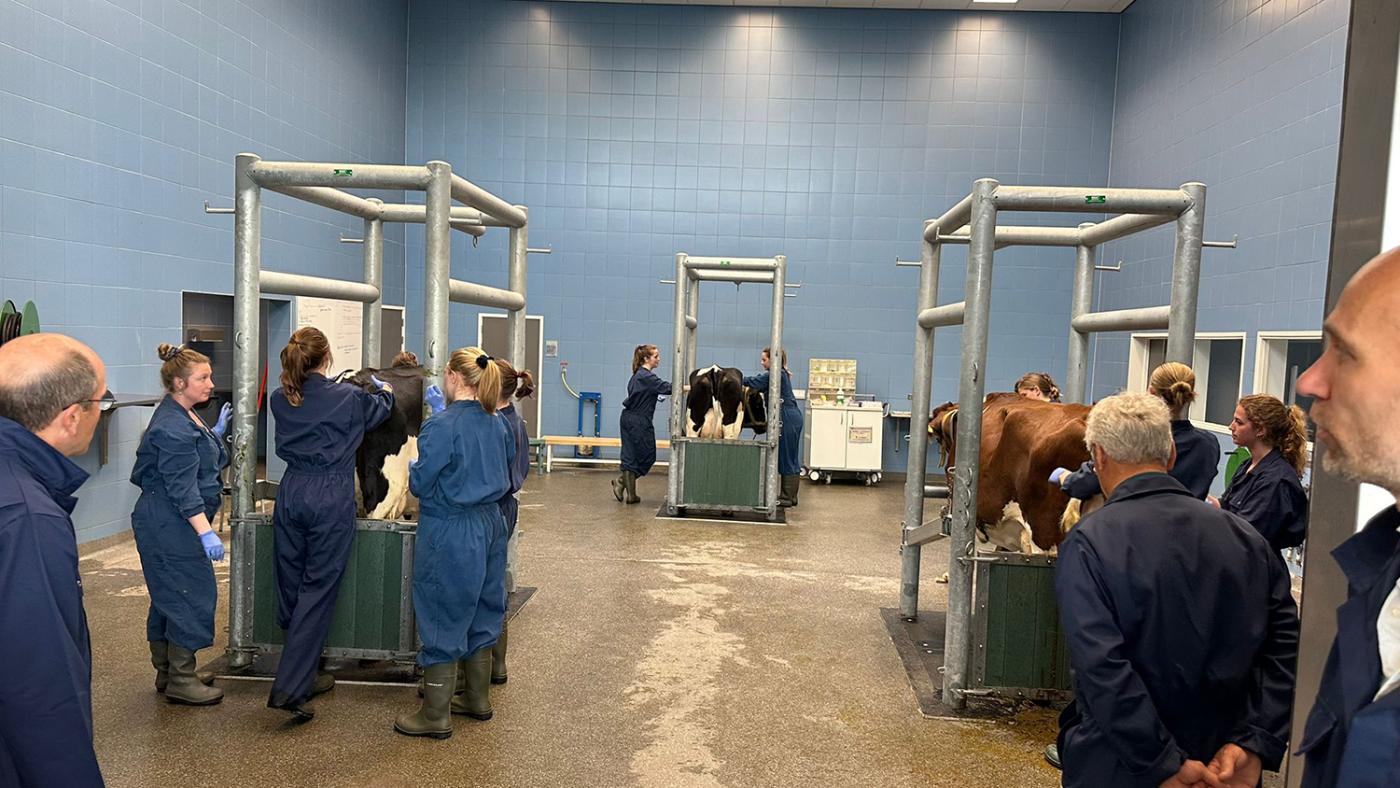
The accreditation committee witnessed a practical lesson in the Farm Animals department. Photo: courtesy of the Faculty of Veterinary Medicine
At the Equine department, someone rushed to find a clean pair of trousers after one of the patients left a brown stain on them. He had ten minutes to spare before the Americans were supposed to stop by for a tour. Equine vet Robin van den Boom emphasises that such a stain wouldn’t have mattered, though. “They’re supposed to get a representative image of how things go around here. Good education also means being in touch with patients, which includes unexpected situations. Shortly before the visitation, there was a horse that needed a terminal c-section, a rather rare procedure. Despite the importance of the day, surgeries were still carried on as planned. At a clinic, you always have to be ready to go.” The department did do some extra cleaning in the weeks prior to the visitation, however.
The treatment rooms were prepared down to the details as well. A rubbish bin that usually stood in the middle of the room was moved to a corner. Marije and Kayli, who are just starting their residencies, were even debating whether or not they should wear jewellery. "Are we allowed to wear studs or hoop earrings? Some people put plasters on them just to be sure,” says Kayli.
The practicum rooms had to look their best as well as the Americans wanted to take a look in there. Things like needle containers were stowed away a little faster than usual, noticed Kayli. “Not because it’s dangerous but because a container filled with blood stains just doesn’t look very tidy.”
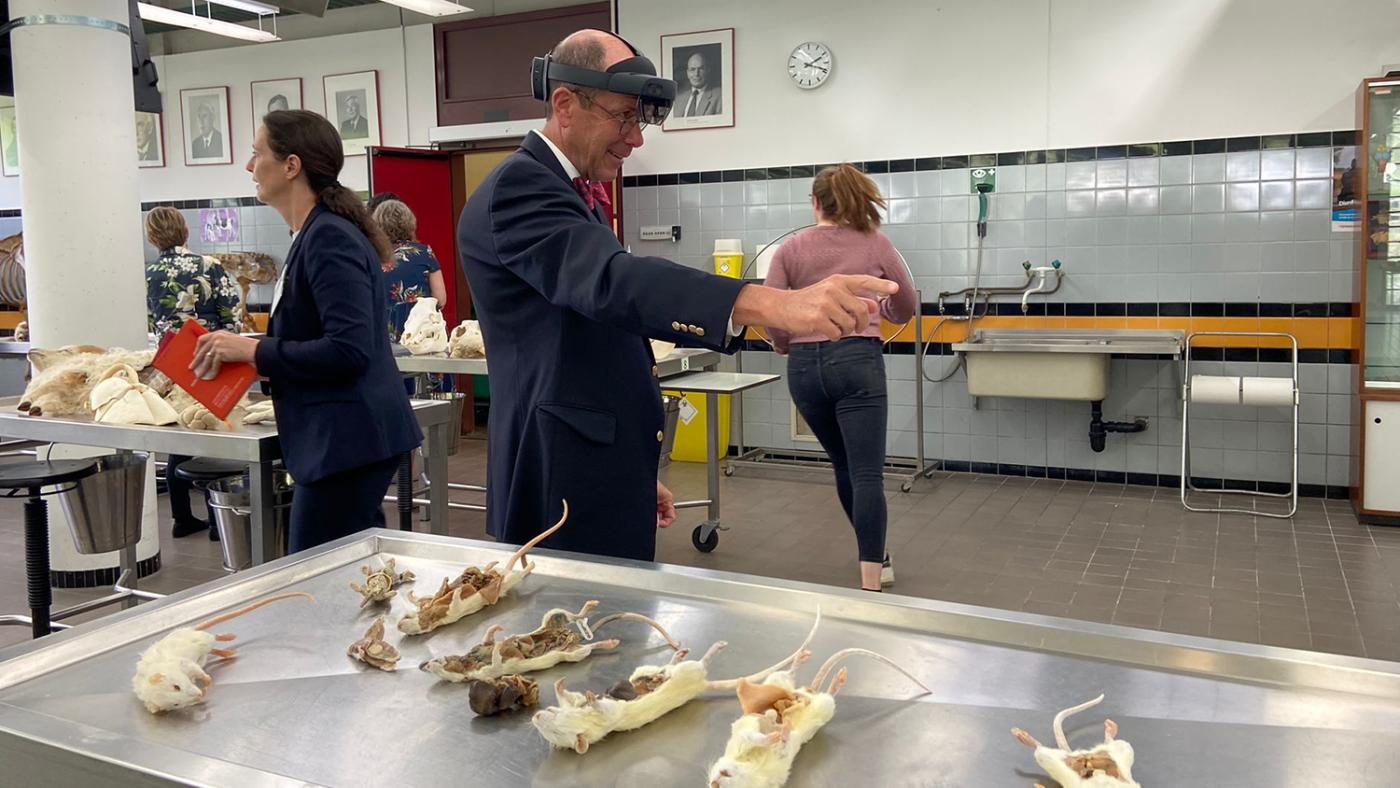
A member of the American accreditation committee take a look at a class in which students used plastinates and virtual reality (the so-called Avatar Zoo) to learn anatomy without using lab animals. Photo: Faculty of Veterinary Medicine
Even the fire extinguishers were inspected
In total, around 150 people worked on the visitation, from Bachelor's students to senior lecturers and support staff. When asked about what the Americans were checking out and asking about, the vice-dean laughs: “Everything! They even checked the inspection date on the fire extinguishers.” But the curriculum remains the most important thing. Everything that influences the quality of education is assessed. “The programme is accessed according to eleven standards, including organisation, finance, facilities, and the educational programme itself. A visitation like this is of great value to us as well, as it forces us to take a critical look in the mirror.” Harold Bok also emphasises that the visit demands a lot from everyone. “That’s why I’m incredibly proud of all the colleagues and students who took the time to work on this.”
Although the official results will only be revealed in October, the committee has already stated that they will be positive. Even if they aren’t, this doesn't mean that the programme will suddenly lose its certification. Students like Fianne have nothing to worry about. “If it were to go wrong, we’d first be put under supervision, so we would get the chance to work on our mistakes. We didn’t think that would happen for a moment. We knew what to expect because we’d talked to them at conferences. Besides, we’ve had this accreditation for so long. The Americans know very well that our programme is good and our facilities are great,” explains the vice-dean, clearly proud.
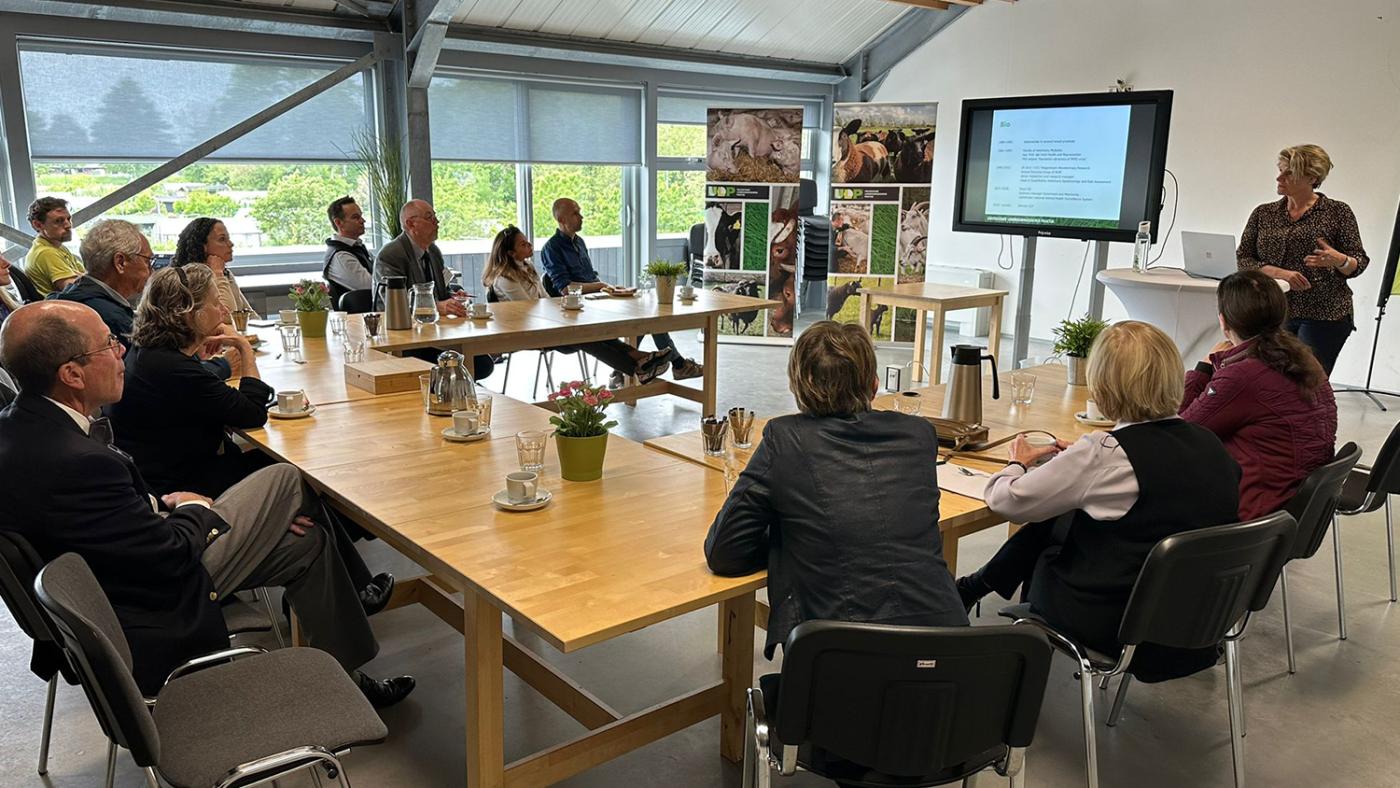
The American accreditation committee is updated on the ins and outs of the programme. Photo: Faculty of Veterinary Medicine